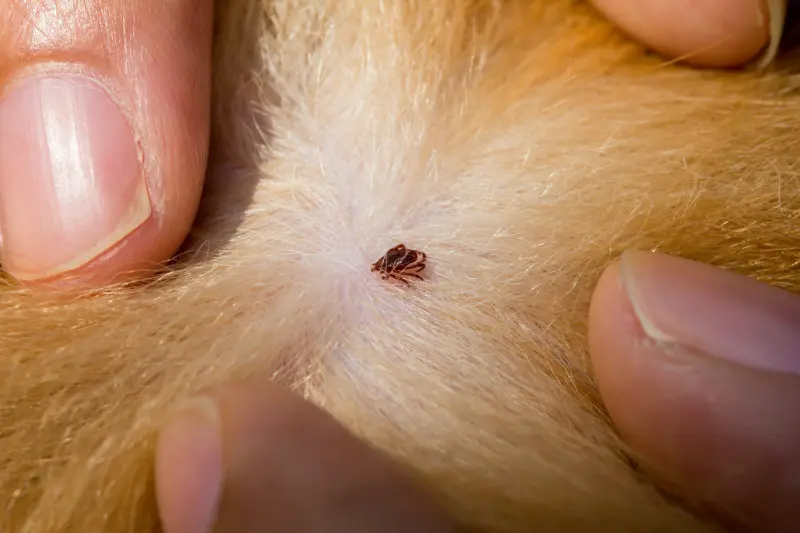Fly, Flea and Tick Prevention Part 1: Cats and Dogs
Fly, Flea and Tick Prevention for Cats and Dogs
Summer can be a tricky season for cats and dogs, and we’re not just talking about the heat. The warmer weather brings a spike in flies, fleas, and ticks, which can be at best, a nuisance for our pets and working animals, and at worst, a major health hazard. As experts in fly, flea and tick prevention that will protect your cats and dogs from these parasites, we’ve got you covered.
Let’s look at ticks first. In the US, there are more than 90 species, and many of them live in wooded areas or near water. Ticks can go for long periods without feeding, emerging as the weather warms or after heavy rainfall. For many states, tick season lasts all year round but, depending on where you live, it can fluctuate. This state-by-state list offers a handy guide.
Ticks are patient: they wait on the tips of grasses or bushes, quickly climbing onto unsuspecting humans and animals as they brush past. Once attached to the skin, they feed on their host’s blood, sometimes for several days. Ticks can pass on several illnesses to humans, but up to 15% of them can transmit Lyme disease, which can cause cardiac, neurological and urinary problems for dogs.
It’s worth keeping an eye on domestic or farm cats for ticks, too. They are highly resistant to the bacteria causing Lyme disease but can be at risk of tick-borne diseases including hemobartonellosis, tularemia and cytauxzoonosis. You can get more information from the Cornell Feline Health Center here.
Fleas are an equally common problem for domesticated and working cats and dogs. Like ticks, they are more active during the warmer months and females can lay around 50 eggs per day, so a single flea can quickly become an infestation. If your dog or cat is scratching more than usual, or you find ‘flea dirt’ – tiny black, flaky particles – on your dog or cat’s underbelly, then chances are they have fleas.
Flies are also troublesome for cats and dogs, and there are many of different species to be aware of. There are biting and non-biting species of fly that feed on blood, saliva, tears or mucus. They can pose a variety of risks to dogs and cats, including mosquitoes, which can spread heartworm, and sand flies, which are a host for leishmaniasis, a parasitic disease that infects white blood cells, the spleen and other organs in cats and dogs. In addition, house flies, bot flies, blow flies, bottle flies and flesh flies will lay their eggs in any animal’s infected skin wound.

Ticks can wait a long time before finding a suitable host, and can pass on illnesses such as Lyme disease while feeding.
Although there are lots of insects in the great outdoors that could pose health risks to your cat or dog, don’t worry. When it comes to fly, flea and tick prevention, we have the solution.

Curicyn BodyGuard spray is hypoallergenic and free from DEET, antibiotics and steroids, so it’s safe to use everywhere.
As everyone knows, fly, flea and tick prevention is always better than the cure. That’s why we developed Curicyn BodyGuard spray, an all-in-one product that helps protect your pets from flies, fleas and ticks without relying on toxic or smelly chemicals. With our product, you can rest assured that your pets are safe and protected.
Our hypoallergenic, botanical, oil-based formula is free from DEET, permethrin, antibiotics and steroids, so it’s safe for humans and animals. You can also apply it directly onto your pet, with no risk of burning, itching or stinging, and it will shield them from a variety of insect-borne diseases, stop the spread of bacteria and protect open wounds or sores.

Easy to use and with no toxic chemicals, Curicyn BodyGuard spray will protect cats and dogs from flies, fleas and ticks all year round.
With the natural protection offered by Curicyn BodyGuard spray, you and your cats and dogs will have a summer to remember!
